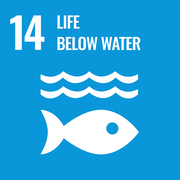
Sapienza in the Tara oceanographic mission
On board Tara, the historic schooner that has been setting sail for the Atlantic Ocean since 2020 to study the distribution of marine microorganisms, an ecologist from Sapienza University of Rome has also boarded for the first time.
Daniele De Angelis, a researcher at the Charles Darwin Department of Biology and Biotechnology, will apply advanced statistical models to the study of the geographical distribution of microorganisms on a regional and global scale, in relation to environmental and climatic factors as part of the Microbiomes mission. His research will also focus on the development of synthetic indices to identify areas of the ocean characterised by higher levels of microbial biodiversity.
"The oceans provide ecosystem services essential to the planet's balance," says De Angelis, "and many of the key functions they perform are regulated by microbial species invisible to the human eye. As a matter of fact, the ocean microbiome, whose biomass is estimated to be four times greater than that of all insects on Earth, produces almost as much oxygen as terrestrial plants, sequesters carbon from the atmosphere, and is a key resource in marine trophic networks'.
Although studies aimed at understanding oceans and marine ecosystems have increased significantly in recent decades, it is still not known precisely which or how many species make up microbial communities, nor what interspecific relationships might underlie their function.
"This mission," continues De Angelis, "will allow us to collect valuable material that will be analysed using metagenomic techniques to identify the species that make up the Atlantic microbiome in order to better understand the ecological processes that characterise marine ecosystems from the role of the microorganisms that inhabit them".
Tara will return to the port of Lorient at the end of October 2022, almost two years after its departure and with well over 70,000 km of voyage behind it, across the Atlantic Ocean and circumnavigating South America, then touching Antarctica and heading back to Europe along the coast of Africa.During the journey, water samples were collected at specific sampling stations identified by the researchers of the AtlantECO project, which is funded by the European Union and involves 42 prestigious research institutes and universities around the world, including Sapienza, the 'Anton Dohrn' Zoological Station in Naples, the ETH Zürich, the Federal University of San Carlo in Brazil and the University of Cape Town in South Africa.
The project adopts a holistic approach to the study of marine ecosystems and is a collaboration between physicists, oceanologists, climatologists, molecular biologists, ecologists and economists. The aim is to understand the structure and function of microbial communities with regard to the threats of climate change and microplastic pollution and then to draw guidelines for the management and protection of the Atlantic Ocean.
"Our hope," concludes Daniele De Angelis, "is that the results of this scientific expedition can make a decisive contribution to increasing knowledge of the state and dynamics governing the marine ecosystems of the Atlantic Ocean in order to promote their preservation".
References
missione “Microbiomes”: https://fondationtaraocean.
progetto internazionale ‘AtlantECO’: https://www.atlanteco.eu/the-
Further Information
Luigi Maiorano
Department of Biology and Biotechnology "Charles Darwin"
T (+39) 06 4991 24760
luigi.maiorano@uniroma1.it
Daniele De Angelis
daniele.deangelis@uniroma1.it
